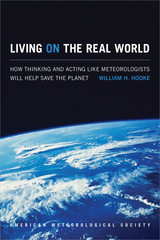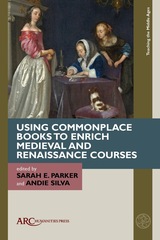
Living on the Real World explains why we should be approaching environmental issues collaboratively, each taking on a challenging aspect and finding solutions to small parts of the larger problem. It outlines current crises brought about by climate change and extreme weather, including effects on food, water, and energy, and then explores the ways we can tackle these problems together. Blending science with a philosophical approach, Hooke offers a clear-eyed analysis as well as an inspiring call to action. Everyone from scientists to politicians, educators to journalists, and businesses large and small, can—and must—participate in order to save the planet for generations to come.

The idea that predictive science can simplify the decision-making process by creating a clearer picture of the future is deeply appealing in principle, but deeply problematic in practice.
Prediction offers a fascinating and wide-ranging look at the interdependent scientific, political, and social factors involved in using science-based predictions to guide policy making. Through ten detailed case studies, it explores society's efforts to generate reliable scientific information about complex natural systems and to use that information in making sound policy decisions. The book:
- provides an overview of predictive science from historical, scientific, political, and behavioral perspectives offers case studies of the use and misuse of scientific predictions on subjects ranging from asteroids to nuclear waste disposal
- proposes a practical analytical framework for the use of predictive science in setting policy
- recommends actions and policies that can increase the likelihood of effective decisions
Prediction is the first book to look at the numerous and varied scientific, social, and political factors involved in making and using predictions relevant to a wide range of current environmental controversies and challenges. It provides much-needed context for understanding predictions and scientific pronouncements, and is an important work for anyone concerned with interactions between science and policy making.
READERS
Browse our collection.
PUBLISHERS
See BiblioVault's publisher services.
STUDENT SERVICES
Files for college accessibility offices.
UChicago Accessibility Resources
home | accessibility | search | about | contact us
BiblioVault ® 2001 - 2024
The University of Chicago Press









